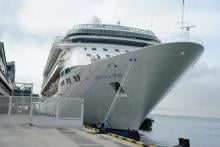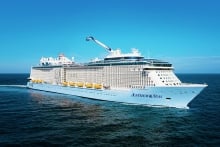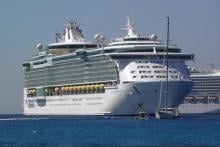No one wants to get sick, especially on vacation, and Royal Caribbean implemented a program in 2023 that got rid of one of the worst illnesses people sometimes catch on cruise ships.
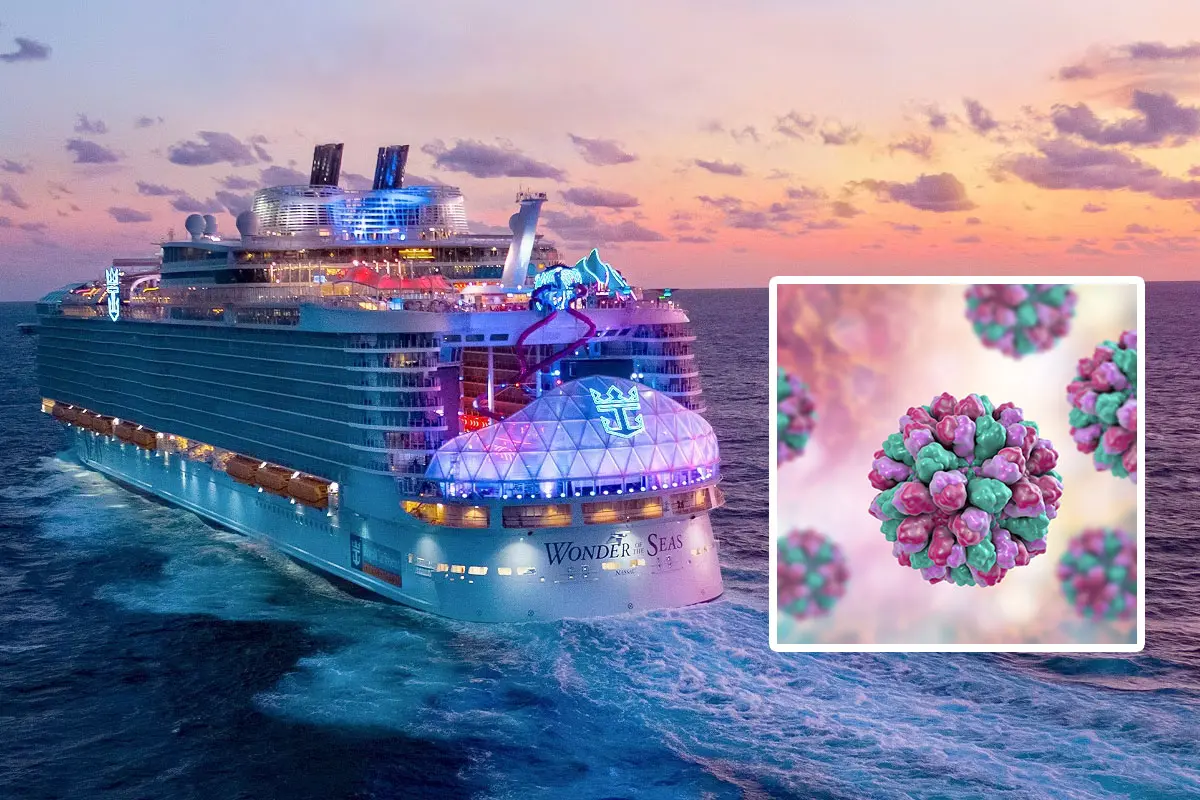
Within Royal Caribbean Groups' environmental stewardship report for 2023 is a section that details what the company is doing to improve public health on its ships.
The Norovirus Eradication Campaign was launched in 2023 on Royal Caribbean International and Celebrity Cruises vessels with the ultimate goal of eliminating transmission of norovirus on its ships.
Norovirus is referred to as "the stomach flu", and is easily spread from person to person.
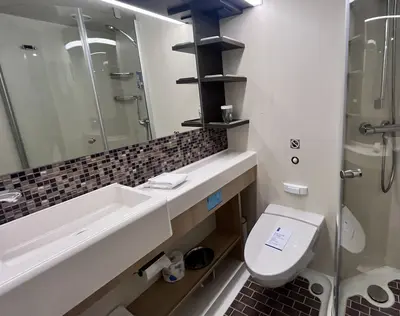
According to the Centers for Disease Control and Prevention, there are 19 to 21 million cases of vomiting and diarrhea illnesses caused by norovirus each year.
Norovirus is transmitted when someone ingests particles of vomit or feces from an infected person, such as through consuming food touched by an infected individual, touching contaminated surfaces and then their mouth, or placing contaminated objects on clean surfaces.
The CDC says the most common symptoms of norovirus are diarrhea, vomiting, nausea, and stomach pain.

While only about 1% of all annual norovirus cases reported in the U.S. happen on cruise ships, the perception is it occurs more frequently due to media reports of gastrointestinal viral outbreaks on cruise ships. This is partly because health officials track illness on cruise ships, so outbreaks are found and reported more quickly on a cruise ship than on land.
You're far more likely to catch norovirus at a long-term care facility, hospital, childcare center, or school.
Regardless, because of the media attention reports of the virus on cruise ships attract, Royal Caribbean Group took action to mitigate cases.
A new approach

In June 2023, Royal Caribbean launched a norovirus eradication campaign that included a range of new protocols and policies.
The six tenants of the program were outlined in the Seastainability report:
1. Enhanced acute GI training for onboard medical teams and traveling PHOs
2. Increased PHO oversight of our Outbreak Prevention Plan, which covers requirements like hand washing, buffet oversight and disinfectant mandates for all public areas aboard our ships
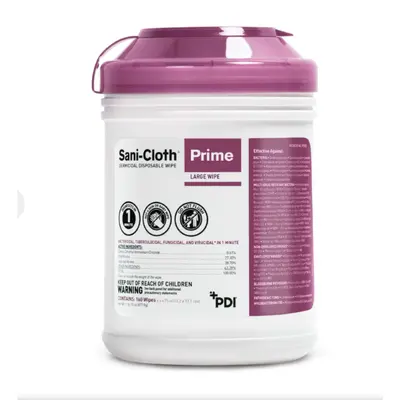
3. Switching to PDI SaniCloth Prime hospital-grade disinfectant wipes (Link contains affiliate link, which costs you nothing extra to use!)
Unlike earlier wipes, PDI wipes carry an EPA claim against norovirus, helping them play a key role in reducing acute GI cases onboard cruise ships.
4. New contactless tap technology, eliminating the need for crew to handle guest cards
5. Enhanced crew training on what to do when experiencing acute GI symptoms and how to avoid cross-contamination in food and beverage service areas
6. An update to our Safety & Quality Management system to stop self-service in buffets if the onboard norovirus rate exceeds 1.5%
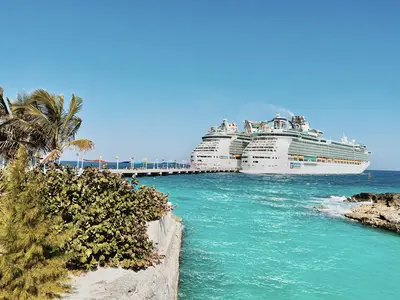
According to the report, after the eradication campaign was implemented in June 2023, there was not a single norovirus outbreak onboard any Royal Caribbean International or Celebrity Cruise ship for the remainder of 2023.
It is worth noting the CDC outbreaks page does list Celebrity Constellation as having an outbreak in January 2024.
Something else trialed was the implementation of Synexis BioDefense purifiers. On eight cruise ships, these units reduced the presence of microbes associated with diseases like COVID-19, influenza and norovirus.
97.3% public health inspection scores
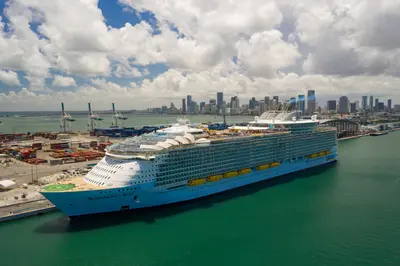
Another big step Royal Caribbean Group made in improving the health of guests and crew members on its ships was to invest more in its public health inspection program.
All cruise ships participate in the CDC's Vessel Sanitation Program, which has been in place since the 1970s to conduct random, unannounced inspections of ships if they wish to visit a port in the United States.
The program enforces strict health and safety guidelines, covering the cleaning of high-touch areas and the management of food storage in freezers, refrigerators, and galleys.
Royal Caribbean Group hired new internal public health inspectors to help the ships improve their public health practices.
The team reviewed public health trends and past areas of concern to come up with recommendations to do better.
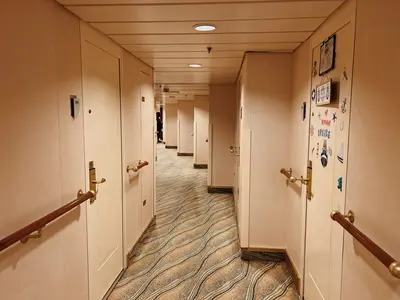
As a result of these and other improvements, the average United States Public Health Services (USPHS) inspection score was 97.3 across the fleet. In fact, 10 ships scored a perfect 100
A ship must score 85 or above to pass inspection.
Should you be concerned about getting norovirus on a cruise?
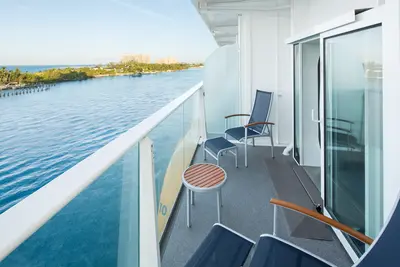
Royal Caribbean Group's eradication program is certainly a positive step, but if you're still worried about catching norovirus, the risks are low.
Even before this new initiative was put into place, the CDC acknowledges that risks are quite low on cruise ships compared to your chances of catching it elsewhere on land. In short, the math points to it being an unlikely scenario for you to encounter.
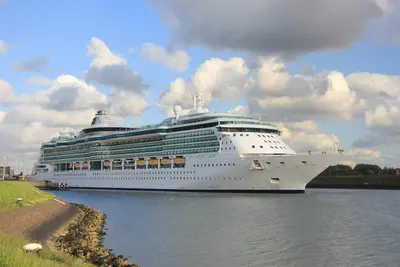
Moreover, the cruise industry as a whole was already headed to a better place prior to 2020. The rate of acute gastroenteritis illnesses on cruise ships decreased during 2006-2019 for passengers and crew, according to CDC data.
Read more: How To Avoid Getting Sick on a Cruise
The CDC advises frequent hand washing with soap and warm water for at least 20 seconds to prevent the spread of norovirus. Key times for handwashing include after using the restroom or changing diapers, and before eating, preparing food, or handling medicine.
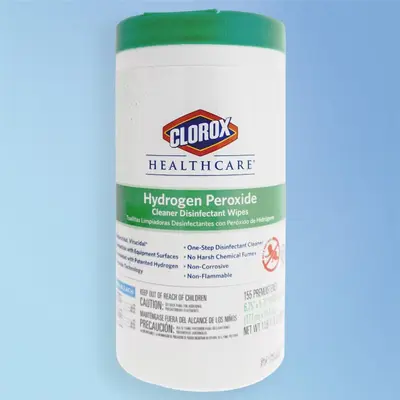
If you want to bring something on your ship to help lower the chance of catching norovirus, Lysol and Clorox products are among the bleaches the Environmental Protection Agency lists as being effective against norovirus. Before you buy anything, keep in mind bleach isn't allowed on cruise ships.
Read more: What can you not bring on a cruise
Instead, you could pack hydrogen peroxide wipes (just don’t flush them down the toilet). We recommend these Clorox Healthcare Hydrogen Peroxide Wipes for taking with you on your ship (Link contains affiliate link, which costs you nothing extra to use!).


